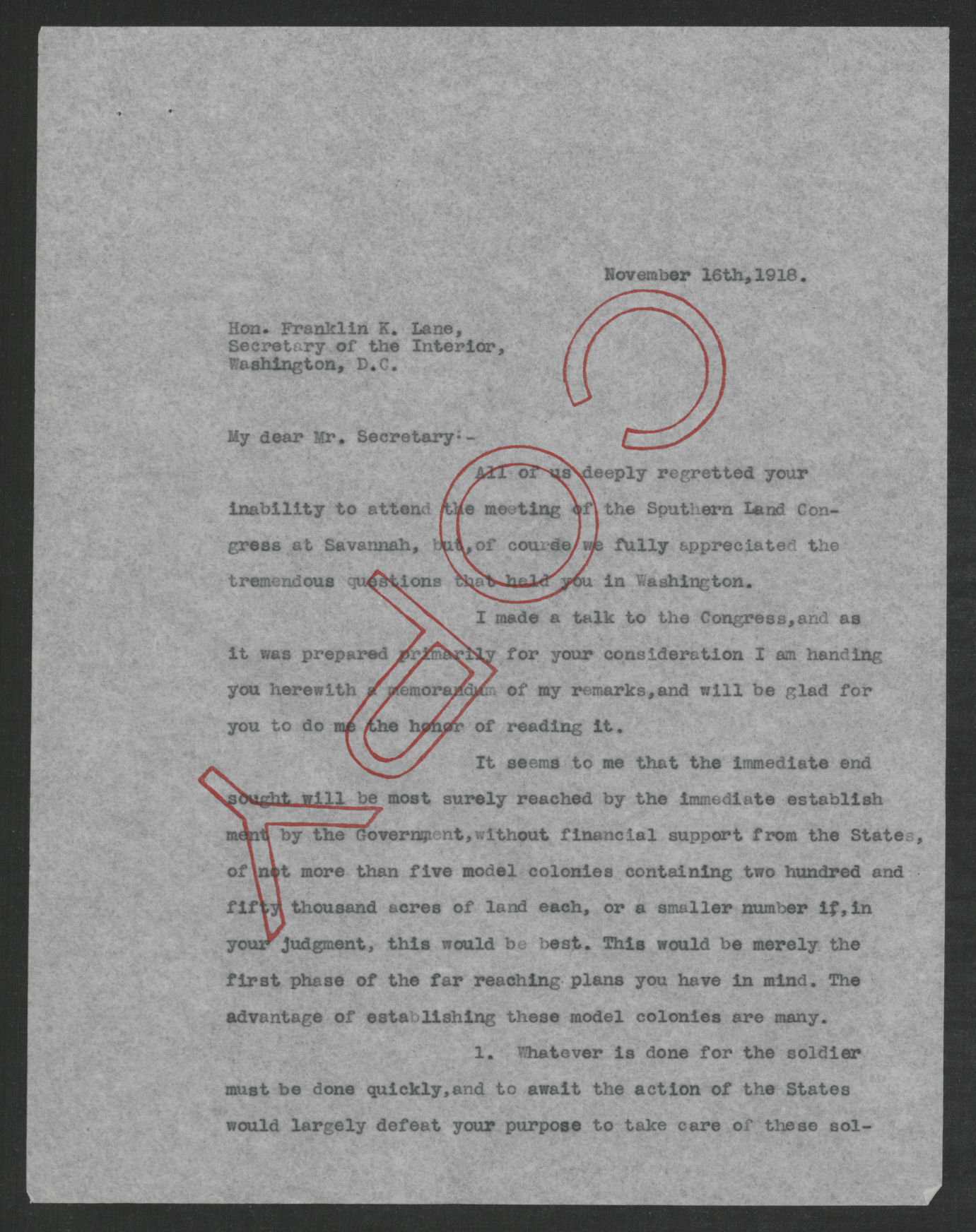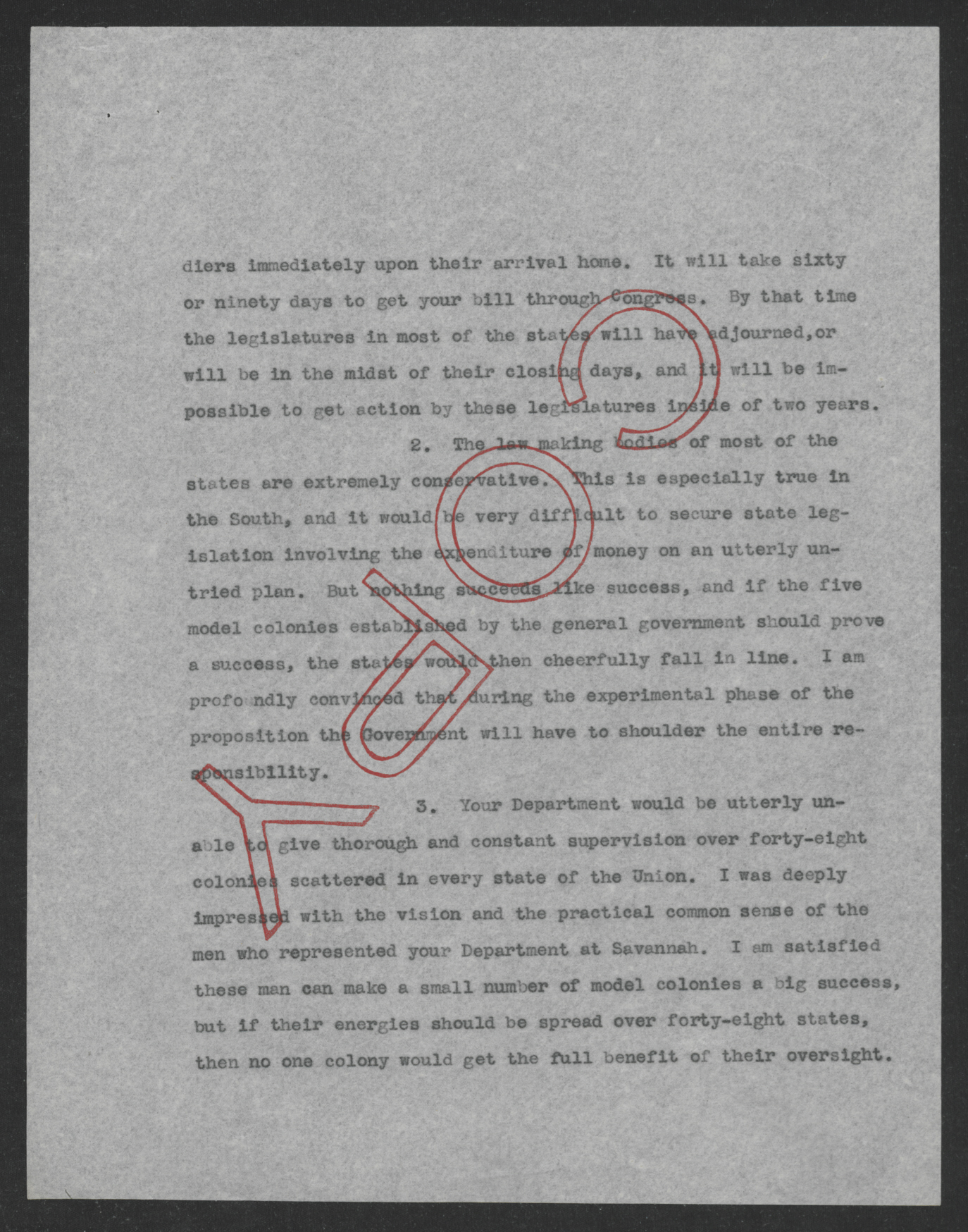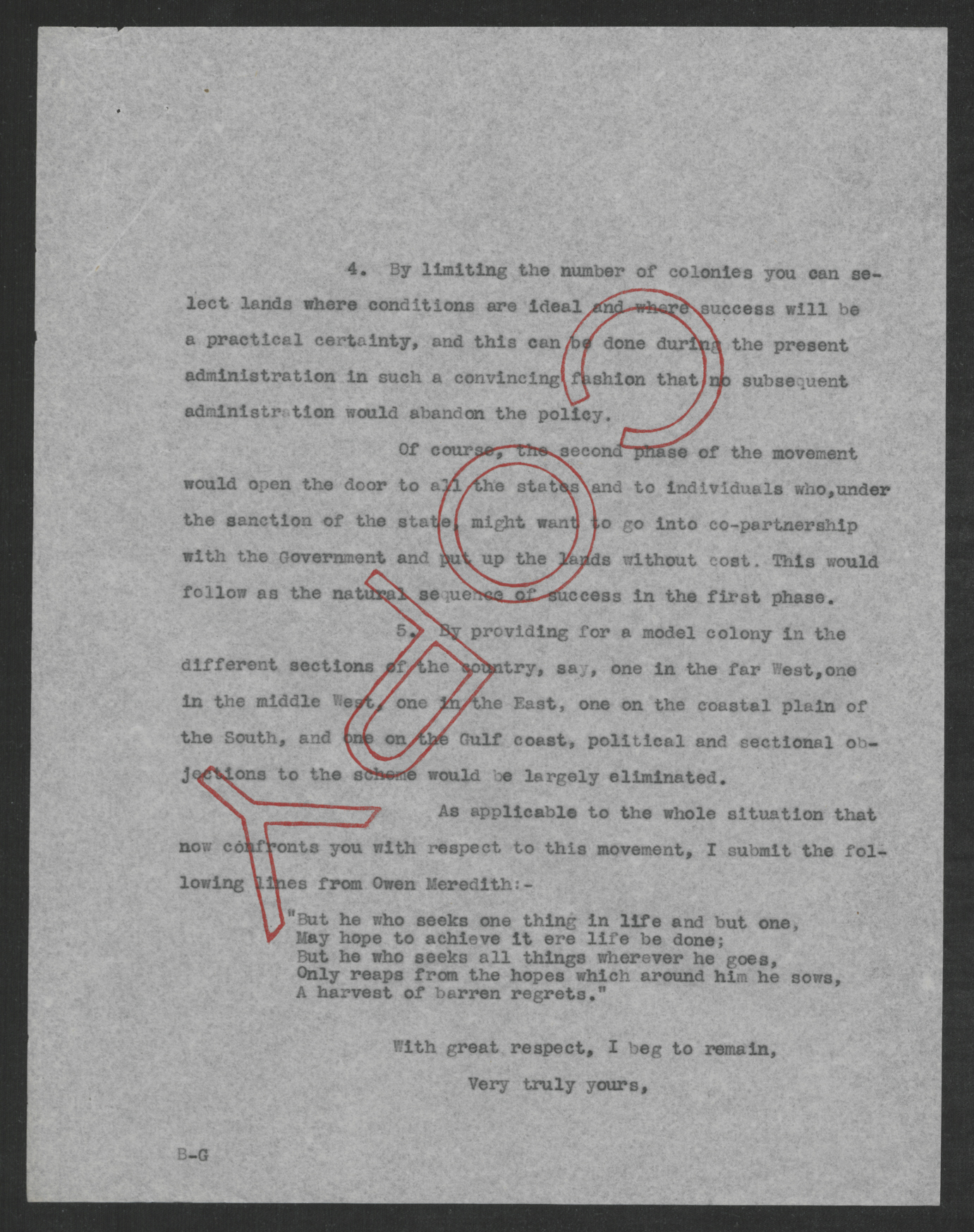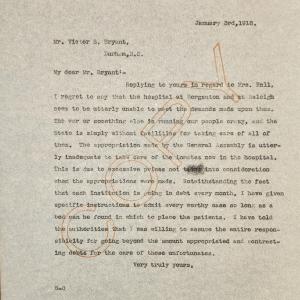November 16th, 1918.
Hon. Franklin K. Lane,
Secretary of the Interior,
Washington, D.C.
My dear Mr. Secretary:-
All of us deeply regretted your inability to attend the meeting of the Southern Land Congress at Savannah, but, of course we fully appreciated the tremendous questions that held you in Washington.
I made a talk to the Congress, and as it was prepared primarily for your consideration I am handing you herewith a memorandum of my remarks, and will be glad for you to do me the honor of reading it.
It seems to me that the immediate end sought will be most surely reached by the immediate establishment by the Government, without financial support from the States, of not more than five model colonies containing two hundred and fifty thousand acres of land each, or a smaller number if, in your judgment, this would be best. This would be merely the first phase of the far reaching plans you have in mind. The advantage of establishing these model colonies are many.
1. Whatever is done for the soldier must be done quickly, and to await the action of the States would largely defeat your purpose to take care of these soldiers immediately upon their arrival home. It will take sixty or ninety days to get your bill through Congress. By that time the legislatures in most of the states will have adjourned, or will be in the midst of their closing days, and it will be impossible to get action by these legislatures inside of two years.
2. The law making bodies of most of the states are extremely conservative. This is especially true in the South, and it would be very difficult to secure state legislation involving the expenditure of money on an utterly untried plan. But nothing succeeds like success, and if the five model colonies established by the general government should prove a success, the states would then cheerfully fall in line. I am profoundly convinced that during the experimental phase of the proposition the Government will have to shoulder the entire responsibility.
3. Your Department would be utterly unable to give thorough and constant supervision over forty-eight colonies scattered in every state of the Union. I was deeply impressed with the vision and the practical common sense of the men who represented your Department at Savannah. I am satisfied these men can make a small number of model colonies a big success, but if their energies should be spread over forty-eight states, then no one colony would get the full benefit of their oversight.
4. By limiting the number of colonies you can select lands where conditions are ideal and where success will be a practical certainty, and this can be done during the present administration in such a convincing fashion that no subsequent administration would abandon the policy.
Of course, the second phase of the movement would open the door to all the states and to individuals who, under the sanction of the state, might want to go into co-partnership with the Government and put up the lands without cost. This would follow as the natural sequence of success in the first phase.
5. By providing for a model colony in the different sections of the country, say, one in the far West, one in the middle West, one in the East, one on the coastal plain of the South, and one on the Gulf coast, political and sectional objections to the scheme would be largely eliminated.
As applicable to the whole situation that now confronts you with respect to this movement, I submit the following lines from Owen Meredith:-
“But he who seeks one thing in life and but one,
May hope to achieve it ere life be done;
But he who seeks all things wherever he goes,
Only reaps from the hopes which around him he sows,
A harvest of barren regrets.”
With great respect, I beg to remain,
Very truly yours,
[unsigned]
B-G
Date:
Sender:
Recipient:
Repository:
Collection:
Places:
»» »» Georgia
»» »» Washington, D.C.







